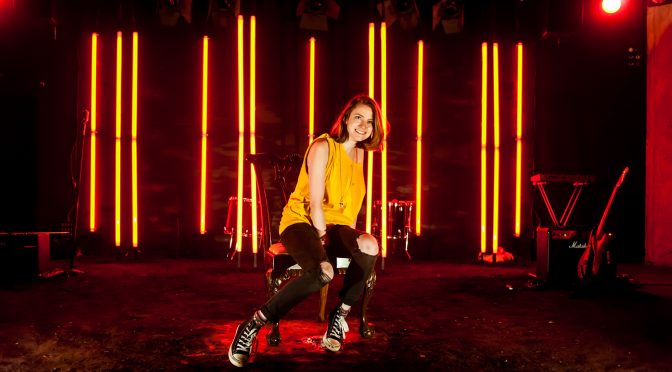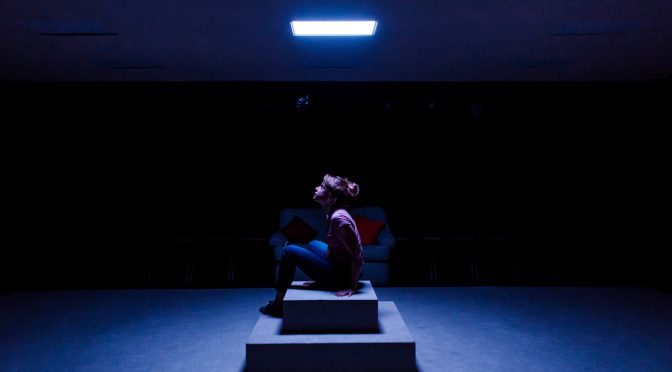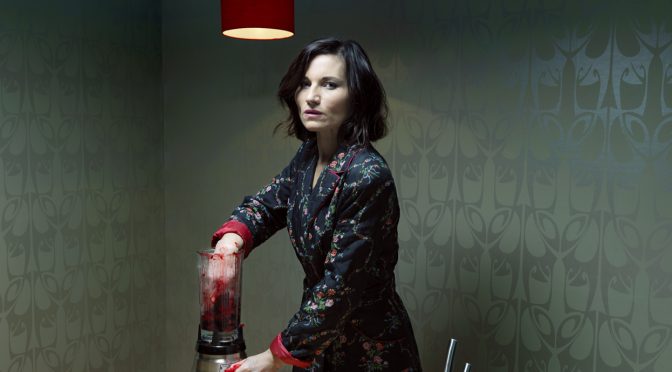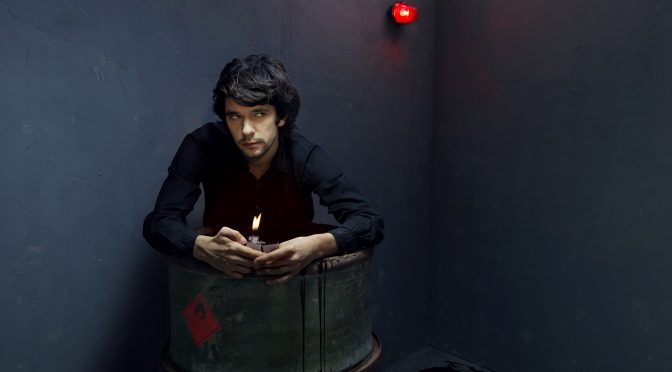We are all used to seeing a Greek tragedy updated, and this new production from John Ward and DumbWise Theatre at the brilliant Bunker Theatre uses both Euripides and Sophocles to show the drama of the Argos royal family. As a political thriller, it is gripping, if not a little enthralled by its own modern touches.
Lydia Larson takes the lead and sets the tone of the piece. Her Emo Electra is suitably “relentless”, full of “scowl and spit and cry”. Towards the end, the portrayal of madness becomes a little monotone, with too much time spent on the tips of her feet, but Larson is convincingly cynical and inspiringly fiery. She’s clearly her mother’s daughter and the show’s Clytemnestra, performed by Sian Martin, is riveting. The Machiavellian queen only hints that revenge was the motive for murdering her husband, coldly dismissing her daughters and manipulating whoever, whenever, at any opportunity. Dario Coates works hard as the returning son and heir, showing depth as a fragile young hero, but this Orestes doesn’t stand a chance against these marvellously formidable women.
You see Martin’s talents most in a scene when Clytemnestra is interviewed on television. Introducing technology is a valid technique, employed before, that Ward uses to focus on the political revolution in the play. The Chorus become virile rebels and courtiers creepy civil servants (there’s strong work here from Megan Leigh Mason) with both parties full of realpolitik as they battle for “hearts and minds”.
The script falls over itself to introduce contemporary touches, from frozen party foods to fake news. The aim is surely to make the show feel relevant, but it lacks finesse. And there’s a reliance on expletives that reveals the language is too frequently prosaic. Some parallels with current events are a little forced – an emphasis on “Godless Greeks” is a clever enough move, but it fights with the religious content of the story as no character really rejects superstition.
The show’s achievements are nonetheless impressive. With the help of strong musical accompaniment – the cast all play instruments and sing – and commendable work from lighting designer Sherry Coenen, this Electra is exciting. The decision to show some violence on stage (contra classic Greek tragedy) and to make the Chorus so dynamic, results in an action- filled show that is consistently, if not constantly, stimulating.
Until 24 March 2018
Photo by Lidia Crisafulli




